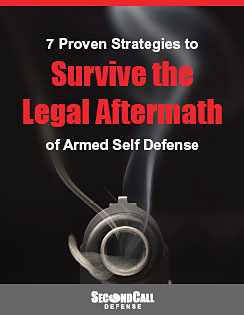Beware the “excited utterance” when talking to law enforcement
One of the most important concepts to understand in the laws of evidence is what is referred to as the “excited utterance.”
An excited utterance is a statement made in response to a shocking event.
It is an exception to the hearsay rule and is admissible as evidence against you. Why? The theory is that because it is spontaneous, unplanned, and made while still under the stress of excitement from the event, it is more reliable than a statement made at a later time when you’ve had a chance to think about what happened.
In other words, the police will assume that anything you say when you’re upset is likely to be more trustworthy than anything you say in an official statement because it is unfiltered and unrehearsed.
While there’s nothing wrong with this in theory, in practice, excited utterances can be big trouble. That’s because while you might be honest in a moment of extreme stress, you may also say things that you don’t mean to say.
In a recent article, Sean Maloney discussed some of the physical effects after a self defense shooting.
No matter how prepared you think you might be to defend yourself, a life or death situation is like nothing you have ever experienced.
Your body will release a massive dose of adrenaline to give you the strength and willpower to fight and survive. But like any chemical, it also has negative side effects, including time distortion, tunnel vision, hearing loss, and emotional detachment.
Even after you survive an attack, your body and mind will suffer from the effects of this dose of adrenaline for hours. You can experience nausea and vomiting, exhaustion, and the urge to pace, yell, or babble rapidly.
The bottom line is this: in the minutes and hours after using your firearm to defend yourself, your body and mind will work against you. You will be unable to remember or describe what happened accurately. You will do things you would not ordinarily do and say things you do not mean to say.
And unfortunately, this is the same time you will deal with law enforcement. This is the time when you are likely to say or do something that can set the tone for the investigation that follows.
For example, in the moments after you have survived a brutal attack where you thought you might die, you might say, “I can’t believe I just shot someone. I’m so sorry. I didn’t mean to shoot him.”
You may be simply expressing the shock that anyone might feel at having just shot someone. You could be honestly upset, wishing that you hadn’t been put in that difficult situation. Perhaps you are trying to convey the idea that you really didn’t want to shoot anyone, but you were forced to.
However, someone hearing your words might misinterpret what you’re saying and think you’re expressing regret for doing something wrong. They might hear you saying that you acted hastily and irresponsibly.
So the excited utterance is a two-edged sword. It may be an honest statement, but the meaning of the statement could be highly questionable. This is one reason why we recommend that you say as little as possible in the immediate aftermath of a self defense shooting.
Two points to keep in mind about excited utterances:
First, while the idea of keeping your mouth shut makes perfect sense to you as you sit calmly reading this, you need to remember that you won’t be thinking so clearly at the moment when you need to understand this principle. In a high-stress, post-shooting situation, you will feel an overwhelming urge to talk. Your brain chemistry will be out-of-balance and you may not be able to make good decisions.
Second, law enforcement knows perfectly well that in a moment of stress a person could say virtually anything. That’s why when an officer is involved in a shooting, it is often department policy to shield the officer for several days. The officer is put on leave and not required to make any statements until they are in their right mind and have had a chance to speak with their attorney and carefully consider their statement. This is common sense, but it is a privilege not extended to the general public.
Bottom line, beware the excited utterance. No matter how badly you want to talk after a self defense shooting, the legal risk far outweighs any benefit.
“

